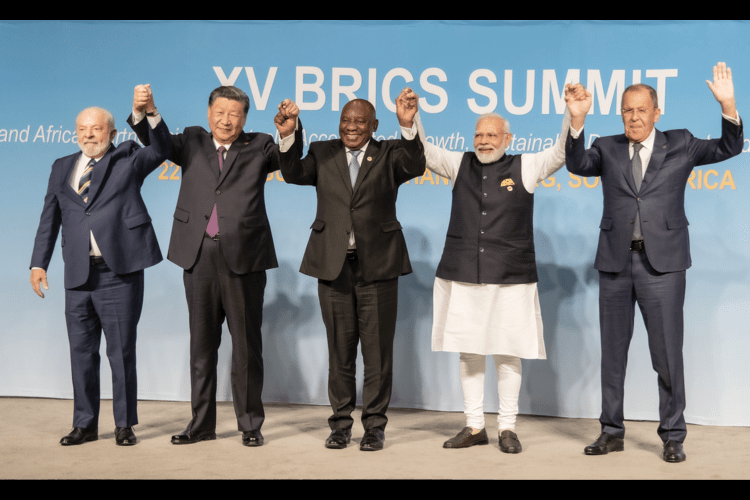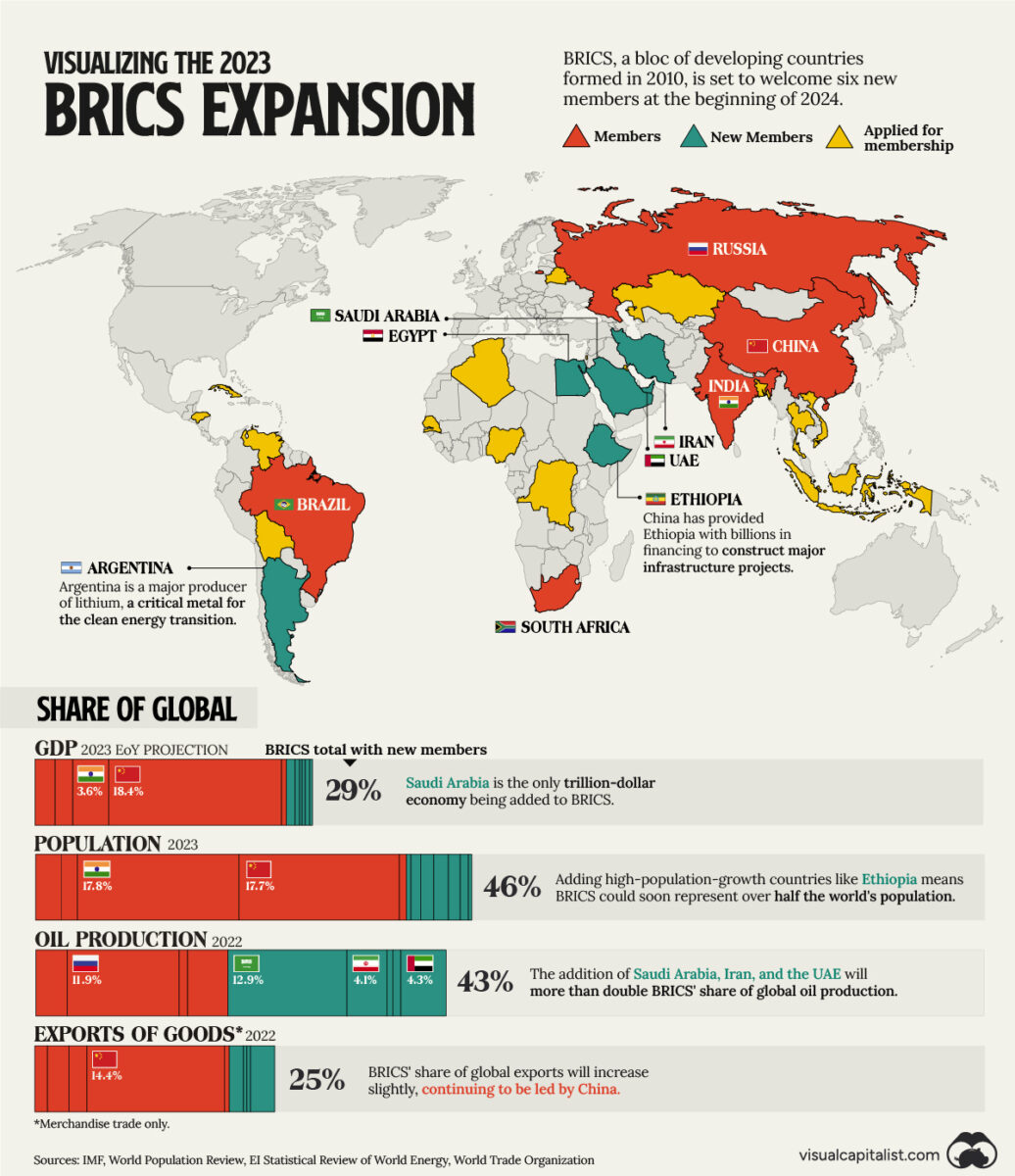
Leaders from China, India, Brazil and South Africa met for BRICS 2023 to discuss trade and the expansion of the group
In a bid to rival Western-led forums, the BRICS group of nations is planning to double its size. The existing members of Brazil, Russia, India, China and South Africa have invited six further countries to join them – Saudi Arabia, Iran, Ethiopia, Egypt, Argentina and the United Arab Emirates.
The move was announced during the 15th annual BRICS summit being held in South Africa.
Together the new grouping will have a population of 3.7 billion people with diverse political systems – five democracies, three authoritarian states, two autocratic monarchies and an Islamic theocracy. Combined they will account for 30 per cent of the world’s output.
At least 30 other countries have expressed an interest in joining this new grouping including Algeria and Bolivia.
Several member, or potential member countries, want the group to act as a counterweight to a Western-dominated world. With the US dollar being the world’s most powerful currency, the current BRICS members have discussed the potential of creating a common currency to counteract the US dollar. Although this is just talk at the moment the idea is likely to be discussed in greater detail at the next summit.
The group has already created a New Development Bank whose primary mission is to fund infrastructure projects.

But, although the BRICS grouping can potentially tilt the axis of world power, there are some serious issues to solve first. These include China-India territorial disputes, economic instability among some members and radically different political outlooks, which could lead to damaging disagreements.
And, as if to highlight this, even before the 2023 summit got underway, controversy surfaced. With the International Criminal Court (ICC) having issued an arrest warrant in March 2023 for Russia’s President Putin for war crimes committed during the invasion of Ukraine.
Host nation South Africa, as a signatory of the ICC, would have been legally obliged to have arrested him. However, the South African government granted diplomatic immunity to all invited leaders.
In response, South African opposition party, the Democratic Alliance, initiated legal action to force an arrest of Putin. In June 2023 the idea of moving the summit to China, which isn’t a signatory and so therefore not obliged to arrest Putin, was considered. However, Putin solved the problem for South Africa by deciding not to attend in person (he addressed attendees via video conference). Instead, Russian foreign minister, Sergei Lavrov, took Putin’s place.
Besides China and India, the financial clout of existing members was comparatively small. The addition of Saudi Arabia and the United Arab Emirates provides more financial heft, especially needed as the group tries to increase the size and influence of its new development bank.
Some analysts see the expansion as a win for China, which had been pushing hard for the move. Another Chinese ambition to set up a global currency to rival the US dollar failed to gather traction at this summit, but it expected to be pushed hard at the next meeting with the expanded membership. While China is facing serious economic problems at home, it has been anxious to achieve a win on the world stage.
South African President Cyril Ramaphosa told the summit: ‘BRICS has embarked on a new chapter in its effort to build a world that is fair, a world that is just, a world that is also inclusive and prosperous.’
MOST READ
- Kremlin brands accusations it killed Prigozhin an ‘absolute lie’; Wagner fighters urged to ‘take revenge’ | War latest
- Historic mugshot: Donald Trump booked on election fraud charges
- Four key things the Prigozhin plane footage tells us – from a former UK military pilot
- Police officer in serious condition after being hit by train while saving ‘distressed man’
- Man jailed for killing lone cyclist in crash and hiding body for years
‘This membership expansion is historic,’ China’s President Xi Jinping said following the announcement. ‘It shows the determination of BRICS countries for unity and cooperation with the broader developing countries.’
President Xi had been expected to address the summit in person, but surprisingly he pulled out of delivering his speech in person at the last minute. He did later attend an official dinner – but no reason was given for not making the speech.




